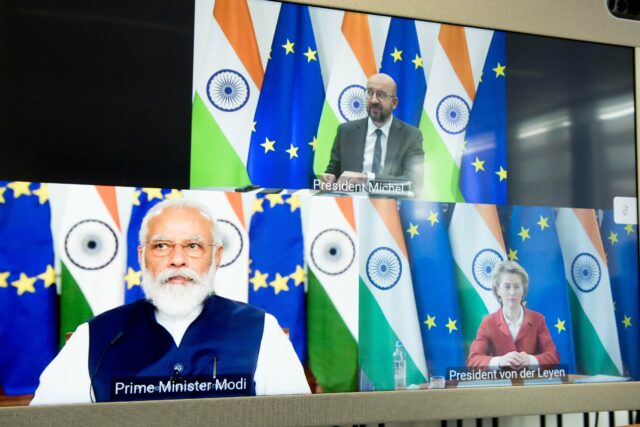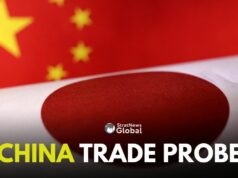NEW DELHI: Ahead of the virtual summit between India and the 27-member European Union (EU) on Saturday, both sides exuded optimism about the larger relationship although carefully skirting any expectations about a breakthrough in talks on a free trade area (FTA).
In a jointly-penned editorial in the online magazine Politico, Narendra Modi and his Portuguese counterpart Antonio Costa (Portugal is currently president of the EU) called for “new routes for political, economic and technological cooperation with enormous potential for mutual benefits”, but EU officials set a modest benchmark for trade, urging “a very resilient medical supply chain and on pharma.”
The latter was reflective of the fact that free trade negotiations have been stalled since 2013. Also, the severity of the pandemic has underscored the continuing vulnerability of the rich nations. But here again, the EU has calibrated its position on waiving IPR for vaccines. Ursula von der Leyen, EU Commission president has said “the EU is ready to discuss any proposal that addresses the crisis in an effective and pragmatic manner.”
So going forward the negotiations on IPR waiver will be tough and will take time. On a more positive note, the recent EU statement that “current developments (in the Indo-Pacific) increasingly threaten the stability and security of the region and beyond, directly impacting on the EU’s interests,” is something that India will welcome as it seems to implicitly single out Beijing.
The Politico editorial noted that “India’s role as a major regional and global player is set to expand over the coming years and a strengthened partnership would offer Europe an opportunity to diversify relations in a strategic region of the world.”
The summit is expected to endorse a “connectivity partnership” that will boost cooperation in rail, maritime and air transport and infrastructure development. Reports have indicated the two sides will seek to shape global standards for digital technologies and data management and operationalise a joint task force on artificial intelligence. They will pool super computing resources for joint modelling on the Covid crisis and climate change.
India can expect greater scrutiny on human rights. EU officials were quoted in the Indian media as saying that “Human rights are very much an important part of the political dialogue between India and the EU … one important message we underlined was the important role that civil society actors and journalists play in a vibrant democracy.”
As the main players get together for the landmark summit, the numbers show how important these negotiations could be for both. A 2020 study by the European Parliament has estimated that the potential benefits of a trade deal for Europe could be $10 billion. For India, the bloc recently pipped the United States to become India’s top export destination accounting for roughly 15% of its exports. An FTA would be a grand gesture as it would tighten the India-EU relationship and begin the long route to ensuring global supply chains move away from China.
Traveller, bibliophile and wordsmith with a yen for international relations. A journalist and budding author of short fiction, life is a daily struggle to uncover the latest breaking story while attempting to be Hemingway in the self-same time. Focussed especially on Europe and West Asia, discussing Brexit, the Iran crisis and all matters related is a passion that endures to this day. Believes firmly that life without the written word is a life best not lived. That’s me, Ashwin Ahmad.





